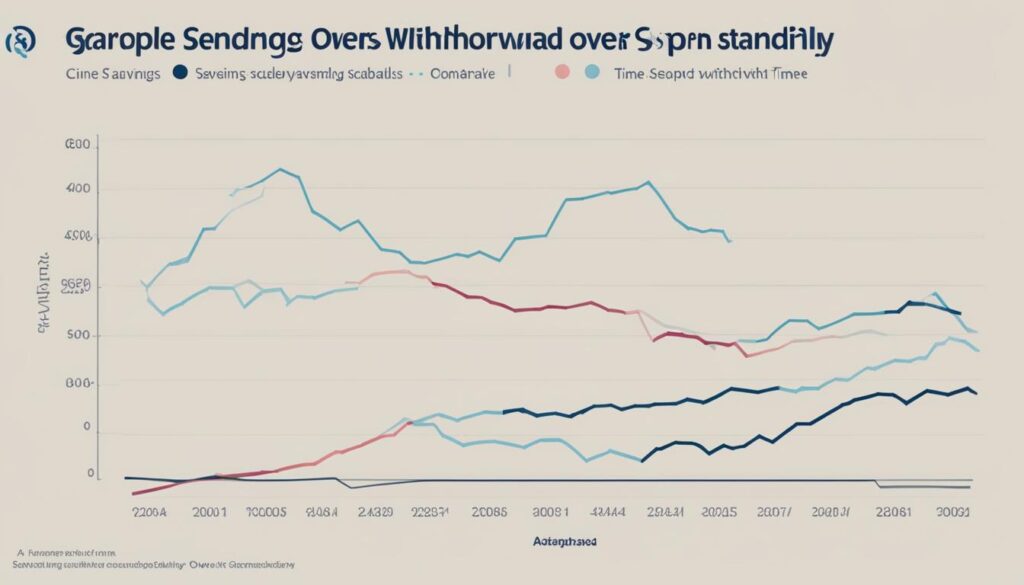As you enter your 70s, it’s crucial to have an investment strategy that focuses on preserving your wealth. This article will provide expert advice and insights tailored to help you protect and grow your wealth during this stage of your life. One of the key aspects of this strategy is understanding your risk tolerance and adjusting your portfolio accordingly. By mastering wealth management strategies, you can create a balanced investment approach that safeguards your assets while still allowing for potential growth. Additionally, consulting with financial advisors who specialize in retirement planning can provide you with personalized guidance to navigate this crucial phase effectively.
Key Takeaways:
- Developing an investment strategy in your 70s is vital for wealth preservation.
- Regularly monitor your spending and withdrawals to adjust as necessary.
- Consider adopting lower-risk investment strategies to protect your wealth.
- Take your required minimum distributions from retirement accounts.
- Designate a trusted contact for financial well-being and fraud concerns.
Monitor your Spending and Withdrawals
One of the key aspects of managing your finances during retirement is monitoring your spending and withdrawals. As you transition into this phase of your life, it’s important to reassess your financial needs and make any necessary adjustments to your budget. By carefully tracking your expenses, you can ensure that you are living within your means and avoid any potential financial strain in the future.
One popular guideline for determining your annual withdrawal amount is the 4% rule. This rule suggests that you withdraw 4% of your portfolio’s value in the first year of retirement, and adjust that amount for inflation in subsequent years. However, it’s important to note that this rule is not one-size-fits-all and should be used as a starting point.
Flexibility is key when it comes to spending and withdrawals in retirement. Your financial needs and circumstances may change over time, and it’s crucial to be able to adapt your strategy accordingly. By regularly reviewing your expenses and adjusting your withdrawals as needed, you can optimize the longevity of your portfolio and increase the probability of maintaining your desired lifestyle throughout retirement.

Planning for a Successful Retirement
“Regularly reviewing your expenses and adjusting your withdrawals as needed can optimize the longevity of your portfolio and increase the probability of maintaining your desired lifestyle throughout retirement.”
To effectively monitor your spending and withdrawals, consider utilizing tools and resources that can help you track your expenses, such as budgeting apps or financial planning software. These tools can provide insights into your spending habits and help you identify areas where you can potentially cut costs.
In addition to monitoring your spending, it’s important to have a plan in place for unexpected expenses or emergencies. Setting aside an emergency fund can provide a financial cushion to help you avoid tapping into your retirement savings prematurely.
By diligently monitoring your spending and making adjustments as necessary, you can ensure that your retirement funds are being utilized wisely and that you are on track to achieve your financial goals.
Adopt Lower-Risk Investment Strategies
As retirement approaches and you enter your 70s, it’s essential to start considering lower-risk investment strategies to safeguard your wealth. While you may have been comfortable with higher-risk investments earlier in life, reducing risk becomes a priority to protect your financial security during retirement.
A key aspect of adopting lower-risk investment strategies is asset allocation. By diversifying your portfolio across different asset classes, you can mitigate the impact of market volatility and reduce the risk associated with any single investment. Consider allocating a portion of your portfolio to cash and short-term fixed-income investments to provide stability and liquidity for your near-term income needs.

However, it’s important not to completely eliminate growth investments from your portfolio. While the allocation to growth investments should decrease over time, maintaining a small portion can still offer potential for long-term growth and help mitigate the risk of inflation eroding your purchasing power. Rebalancing your portfolio periodically can ensure that your asset allocation remains aligned with your risk tolerance and financial goals.
By adopting lower-risk investment strategies and diversifying your portfolio, you can strike a balance between protecting your wealth and pursuing consistent growth. Consult with a qualified financial advisor to assess your risk tolerance, determine suitable investment options, and create a tailored investment strategy that aligns with your retirement goals and aspirations.
Take Your Required Minimum Distributions
Once you reach age 73, it’s important to start taking your required minimum distributions (RMD) from your tax-deferred retirement accounts. Failing to do so can lead to significant penalties from the IRS. Understanding the requirements for your RMD and planning accordingly can help you avoid unnecessary financial burdens.
Table 1: Required Minimum Distribution (RMD) Age Requirements
| Age | RMD Percentage |
|---|---|
| 72 | 3.91% |
| 73 | 4.05% |
| 74 | 4.17% |
| 75 | 4.29% |
| 76 | 4.41% |
When taking your RMD, you have the option to use the funds for living expenses or reinvest them for future growth. However, it’s important to consult with a financial advisor to determine the most suitable approach based on your individual circumstances and goals. Qualified charitable distributions (QCDs) can also be a beneficial strategy to lower your taxable income while supporting charitable causes you care about.
By familiarizing yourself with the RMD requirements and incorporating them into your retirement income plan, you can ensure compliance with tax regulations and make the most of your retirement accounts. The guidance of a financial advisor can be invaluable in navigating the complexities of RMDs and optimizing your overall financial strategy for retirement.
Designate a Trusted Contact
When it comes to your financial well-being and estate planning, it’s essential to have a trusted contact in place. This person will act as a reliable point of contact for your financial advisor, providing them with the necessary information and support to ensure your financial affairs are properly managed.
Choosing a trusted contact is a decision that should be made carefully. Consider someone who knows you well, understands your financial goals, and is willing and able to take on the responsibilities associated with this role. It could be a family member, close friend, or even a professional advisor. The key is to select someone you trust implicitly.
By designating a trusted contact, you provide an additional layer of protection against financial fraud or exploitation. Your financial advisor can reach out to this person if they have concerns about your financial well-being, helping to prevent any potential harm. This measure ensures that your financial affairs are being monitored and managed in your best interest, even if you are unable to do so yourself.
Why a Trusted Contact is Important
Having a trusted contact in place is particularly crucial for estate planning. In the event of your incapacity or passing, this person can step in to make important financial decisions on your behalf. They can work with your financial advisor and other professionals to ensure the smooth transition of your assets and the fulfillment of your wishes.
Additionally, a trusted contact can provide peace of mind for your loved ones. They will know that there is someone they can turn to for guidance and support if they need help managing your financial affairs. This person can help ease the burden during a difficult time and ensure that your estate is handled efficiently and in accordance with your wishes.
Designating a trusted contact is a vital component of your estate planning process. It helps protect your financial well-being, ensures your wishes are carried out, and provides support for your loved ones. Consult with your financial advisor to determine the best course of action and to ensure that the necessary legal documents, such as power of attorney and advanced medical directives, are in place.
Review Your Estate Plan
As you enter your 70s, it becomes increasingly important to review and update your estate plan to ensure that your wishes are carried out after your passing. This includes updating your will, trust (if applicable), and beneficiary designations on your retirement accounts and life insurance policies.
An estate plan is a comprehensive set of legal documents that outlines how your assets will be distributed and your affairs managed upon your death or incapacitation. It also allows you to designate individuals to make financial and healthcare decisions on your behalf if you are unable to do so.
One critical component of your estate plan is your will. It specifies how your assets will be distributed, who will be responsible for managing your estate, and who will care for any minor children you may have. Regularly reviewing and updating your will ensures that it accurately reflects your current financial situation and preferences.

Beneficiary designations
In addition to your will, you should also review the beneficiary designations on your retirement accounts and life insurance policies. These designations determine who will receive the proceeds from these accounts upon your death.
By regularly reviewing and updating your beneficiary designations, you can ensure that your assets are distributed according to your current wishes. It’s important to note that beneficiary designations supersede any instructions made in your will, so it’s crucial to keep them up to date.
The importance of estate planning
Estate planning is not just about distributing your assets; it’s also an opportunity to leave a meaningful legacy. Consider any non-financial legacies you may want to pass on, such as personal values, life lessons, or charitable intentions. Including these in your estate plan ensures that your impact extends beyond your financial wealth.
Working with an attorney who specializes in estate planning can help ensure that your plan is thorough and legally sound. They can provide guidance on the best strategies for minimizing taxes, protecting your assets, and achieving your legacy goals.
The Role of Investment Advisors
When it comes to planning for retirement and achieving your financial goals, the expertise and guidance of an investment advisor can be invaluable. Investment advisors are professionals who specialize in helping individuals navigate the complexities of financial planning and investment management. Their role is to provide personalized advice tailored to your specific needs and circumstances, helping you make informed decisions about your money.
One of the key benefits of working with an investment advisor is their ability to help you establish clear retirement goals. They will take the time to understand your aspirations, whether it’s traveling the world, starting a business, or leaving a legacy for future generations. By assessing your current financial situation and risk tolerance, they can develop a comprehensive plan that aligns with your goals and helps you make the most of your resources.
Financial planning is not a one-time event; it requires ongoing monitoring and adjustments. Investment advisors play a vital role in regularly reviewing your portfolio, analyzing market trends, and making necessary changes to keep your investments on track. They will help you navigate market fluctuations, optimize your asset allocation, and ensure that your investments stay in line with your risk tolerance and time horizon. With their expertise, you can have peace of mind knowing that your retirement savings are being managed proactively and in your best interest.
Collaborating for Success
An investment advisor can also serve as the central point of contact for all your financial needs. They can collaborate with other professionals such as accountants and lawyers to provide a holistic approach to your financial planning. This ensures that all aspects of your wealth management, tax strategies, and estate planning are well-coordinated and aligned with your overall goals.
In conclusion, investment advisors play a crucial role in helping individuals achieve their retirement goals and preserve their wealth. By providing personalized advice, ongoing monitoring, and collaboration with other professionals, they can help you navigate the complexities of financial planning and make informed decisions. If you’re looking to secure your financial future and maximize your retirement savings, partnering with an investment advisor is a wise choice.
Conclusion
Developing and implementing an investment strategy specifically designed for your 70s is crucial for wealth preservation and securing your financial future. By monitoring your spending, adopting lower-risk investments, taking required minimum distributions, designating a trusted contact, reviewing your estate plan, and seeking professional advice, you can effectively navigate this stage of your life and achieve your retirement goals.
Regularly reassessing your strategy and making adjustments as needed to adapt to changing circumstances is key. This flexibility will ensure that your investment strategy remains aligned with your evolving needs and goals. Remember, the ultimate aim is to preserve and grow your wealth while maintaining financial stability throughout your retirement years.
Preserving your wealth is not just about financial planning; it’s also about protecting your legacy and ensuring your wishes are carried out after your passing. Our holistic approach encourages you to review and update your estate plan regularly, consider non-financial legacies, and collaborate with professionals like accountants and lawyers to ensure all aspects of your financial well-being are addressed.
What Investment Strategies are Best for Funding My Grandchildren’s Education in My 70s?
In your 70s, planning for financially supporting grandchildren’s education requires low-risk investments like bonds or dividend-paying stocks. Consider 529 college savings plans for tax benefits. Consult a financial advisor to tailor a strategy that suits your timeline and risk tolerance, ensuring your grandchildren’s educational future is secure.
FAQ
What investment strategies should I focus on in my 70s?
It’s crucial to have an investment strategy that focuses on preserving your wealth. Adopting lower-risk investment strategies, regularly monitoring your spending and withdrawals, and seeking professional advice can help protect and grow your wealth during this stage of life.
How should I monitor my spending and withdrawals in retirement?
It’s important to regularly monitor your spending and withdrawals in retirement and make adjustments as necessary. While the 4% rule can provide a starting point for determining your yearly withdrawal amount, being flexible and adjusting as needed can significantly impact the longevity of your portfolio and increase the probability of lasting through retirement.
What are some lower-risk investment strategies I should consider?
As you age, it’s wise to consider keeping a portion of your portfolio in cash and short-term fixed-income investments to meet near-term income needs and prevent selling assets during market downturns. While decreasing allocation to growth investments is expected, maintaining a small allocation can provide diversification benefits and help mitigate inflation risk.
When do I need to start taking minimum annual withdrawals from my retirement accounts?
When you reach age 73, you are generally required to start taking minimum annual withdrawals from your tax-deferred retirement accounts. Failing to do so can result in significant IRS penalties. It’s important to familiarize yourself with the requirements for your required minimum distributions (RMD) and consider using the funds for living expenses or reinvesting them for future growth.
Why should I designate a trusted contact for my financial advisor?
Designating a trusted contact allows your financial advisor to reach out if they have concerns about your financial well-being or the possibility of financial fraud. This individual should be someone you trust and can rely on. It’s also important to have a power of attorney and advanced medical directive in place to ensure your financial and healthcare decisions are in good hands if you are unable to make them yourself.
What should I consider when reviewing my estate plan?
It’s vital to review and update your estate plan to ensure your wishes are carried out after your passing. This includes updating your will, trust (if applicable), and beneficiary designations on your retirement accounts and life insurance policies. Additionally, consider any legacy goals you may have and assess if you are on track to meet them. Non-financial legacies, such as personal values and life lessons, are also significant considerations.
How can investment advisors help me with my retirement goals?
Seeking the guidance of an investment advisor can be invaluable in creating an effective strategy for achieving your retirement goals. They can provide personalized advice tailored to your specific financial situation and help you navigate the complexities of investment planning. Collaborating with other professionals like accountants and lawyers can further enhance your financial planning efforts and ensure a holistic approach to managing your wealth.
How Does Estate Planning Help with Wealth Preservation in Your 70s?
Estate planning is crucial for wealth preservation in your 70s. Proper estate planning tips for 70s can offer various benefits, including minimizing estate tax, ensuring your assets are distributed according to your wishes, and protecting your family’s financial future. By creating a comprehensive estate plan, you can also designate a trusted individual to manage your affairs if you become incapacitated. Start estate planning early to secure a financially stable future for yourself and your loved ones.

